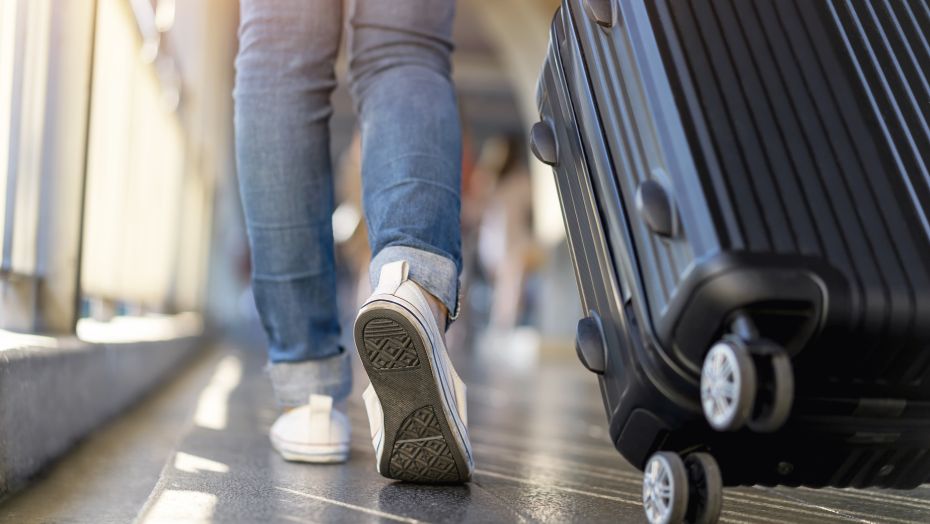
Is It Safe to Travel with the Coronavirus Outbreak?
If you have travel plans during the COVID-19 outbreak there are a few things you need to know. Check out the frequently asked questions below.
Should I cancel my trip?
The first question you may be asking is, “Should I cancel my trip?” At this time, most non-essential international travel should be avoided if possible. The CDC is providing recommendations for travel based on the assessment of potential health risks involved with traveling to certain countries. Additionally, domestic travel to areas with high community transmission should be cautiously re-considered, particularly for older adults or those with underlying health issues. You should check the risk associated with your destination before your departure. The World Health Organization is recommending that elderly travelers and those with underlying health conditions avoid travel to areas that are experiencing ongoing transmission of COVID-19.
For those who decide to cancel or postpone their travel, many airlines and other organizations are offering flight credits or some form of reimbursement to reschedule your travel. It is recommended that you check with your airline or travel agent for full details on flight change or cancellation policies.
Is it safe to go on a cruise?
The CDC is now recommending that travelers, particularly those with underlying health issues, defer all cruise ship travel worldwide. The CDC states: “Cruise ship passengers are at increased risk of person-to-person spread of infectious diseases, including COVID-19. Older adults and travelers with underlying health issues should avoid situations that put them at increased risk for more severe disease. This entails avoiding crowded places, avoiding non-essential travel such as long plane trips, and especially avoiding embarking on cruise ships.”
If you do go on a cruise, make sure you are maintaining proper hand hygiene and stay in your cabin if you are sick. You should also let the onboard medical center know immediately if you develop a fever or have other symptoms such as cough, shortness of breath or sore throat.
Should I wear a face mask while traveling?
The CDC recommends that people wear a cloth face covering to cover their nose and mouth in the community setting. This is to protect people around you if you are infected but do not have symptoms. Keep in mind surgical masks and N95 respirators should be reserved for healthcare workers or other medical first responders, as recommended by CDC guidance.
Cloth masks should be regularly washed with detergent and the warmest water the fabric allows. Be sure to wash your hands after handling used masks and avoid touching your eyes, nose and face when removing or putting on your mask. It is important to note that these face coverings are not a substitute for social distancing.
Other ways to protect yourself and others from COVID-19 include:
- Staying away from people who are sick
- Avoiding touching your eyes, nose and mouth
- Cleaning and disinfecting frequently touched objects and surfaces
- Washing your hands with soap and water for at least 20 seconds, especially after going to the bathroom, before eating and after blowing your nose, coughing or sneezing.
What kinds of quarantines or restrictions should I expect upon my return?
At present, the CDC has warned people to avoid nonessential travel to areas with widespread, ongoing transmission. Depending on your health and travel history, there will be some level of restrictions on movement for two weeks after you have departed.
If I have to travel, how can I stay healthy?
There are several ways to promote health and minimize your risk of developing illness while traveling. These include:
- Get plenty of rest and maintain a balanced diet
It’s easy to overdo it while traveling, especially when dealing with jet lag and new cuisine. Try to get at least seven to nine hours of sleep each night and maintain a diet consisting of fresh fruits and vegetables, fiber and lean protein to support a strong immune system.
- Stay hydrated
Hydration is key to good health no matter where you are, but when you travel it can become even more essential. Drinking water can keep the mucous membranes in your throat and nasal passages from drying out, which can protect you from germs.
- Bring your own disinfectant
Pack hand sanitizer and sanitizing wipes so you can wipe down frequently touched places and items, particularly those that are shared with others. This includes armrests, seatbelts, tray tables and any touchscreen entertainment systems. If you’re traveling via an airline, make sure your hand sanitizer is 3.4 ounces or less per TSA policy. The CDC recommends hand sanitizers that contain at least 60% alcohol content, so check the active ingredients on the back of the bottle when you choose one.
You can learn more about COVID-19 at ochsner.org/coronavirus
The CDC’s information regarding travel restrictions is subject to change, for up-to-date information regarding COVID-19 and travel visit: CDC COVID-19 Information for Travel
If you have any of these symptoms, call our free 24/7 nurse care line, Ochsner on Call, or see a provider from home with an Ochsner Anywhere Care virtual visit.
The information in this blog post is accurate at the time of publication. However, as the situation surrounding COVID-19 continues to change, it's possible that information has changed since being published. While Ochsner Health is trying to keep our blog posts as up-to-date as possible, we also encourage readers to stay informed on news and recommendations by using the CDC website.



